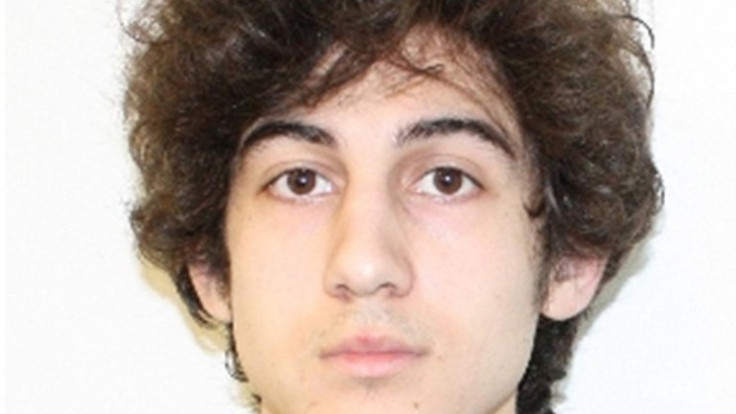Boston Marathon Bombings: Prosecutors Consider Death Penalty for Dzhokhar Tsarnaev

The Obama administration is considering whether to seek the death penalty against Boston bombings suspect Dzhokhar Tsarnaev.
Tsarnaev remains in intensive care in a Boston hospital following his capture on Friday 19 April. He is unable to speak due to gunshot wounds to his neck and tongue, and is being kept under armed guard with FBI interrogators on hand to question him. He has yet to be charged.
Authorities say they do not plan to inform Tsarnaev of his "Miranda" rights to remain silent and have a lawyer present when he is interviewed. They plan instead to invoke legal exemptions relating to risks to the public in an emergency.
"There is a public safety exemption in cases of national security and potential charges involving acts of terrorism," said US attorney Carmen Ortiz. "And so the government has that opportunity right now, though I believe that the suspect has been taken to a hospital."
The Department of Justice confirmed that Tsarnaev had not been read his rights, enabling interrogators to "question him extensively about other potential explosive devices or accomplices and to gain critical intelligence".
It is unclear whether the administration will push for the death penalty, which would apply were Tsarnaev to be tried on the federal charge of using a weapon of mass destruction to kill people. However, the death penalty does not apply in the state of Massachusetts.
Three people died in the marathon bombings, with more than 180 wounded. A policeman was shot dead during the subsequent manhunt.
The FBI has forbidden doctors at the hospital to speak to the media about Tsarnaev's condition, and will assume that responsibility themselves. The agency yesterday admitted it had interviewed Tamerlan Tsarnaev in 2011 at the request of the Russian government, after the suspect's parents both accused security services of framing the brothers.
Tamerlan died in a shoot-out with police in the early hours of Friday.
The federal public defender for Massachusetts, Miriam Conrad, has said her office expects to represent Dzhokhar Tsarnaev after he is charged. She called for a lawyer to be appointed as soon as possible due to "serious issues regarding possible interrogation".
As a US citizen, Dzhokhar cannot be tried by a military commission, and must instead be prosecuted in a civilian court. He was naturalised as a US citizen in September 2012.
Anthony Romero, executive director of the American Civil Liberties Union, criticised the plan to withhold the suspect's rights, saying there was "not an open-ended exception" to the Miranda rule.
However, several congressional Republicans criticised the administration for affording Tsarnaev more rights than he deserved, and called for further restrictions.
In a joint statement, Senator Lindsey Graham and Senator John McCain called for the suspect to be tried as an "enemy combatant" in a military trial.
But Adam Schiff, a former federal prosecutor and member of the House Intelligence Committee, urged the administration to ignore what he called "hasty calls to treat the suspect as an enemy combatant".
"This is not a foreign national caught on an enemy battlefield, but an American citizen arrested on American soil," Schiff said.
"The Justice Department has demonstrated a far greater ability to successfully prosecute suspected terrorists in federal courts than the military commissions have thus far been able to show. Nothing must be done to compromise the public safety, the ability of prosecutors to seek justice for the victims or our constitutional principles."
The Supreme Court has so far been unable to resolve whether citizens or foreign nationals arrested on US soil should be held by military or civilian authorities.
However, the administration previously secured a life sentence against Nigerian "underpants bomber" Umar Farouk Abdulmutallab after he attempted to blow up a plane on Christmas Day 2009.
© Copyright IBTimes 2025. All rights reserved.





















